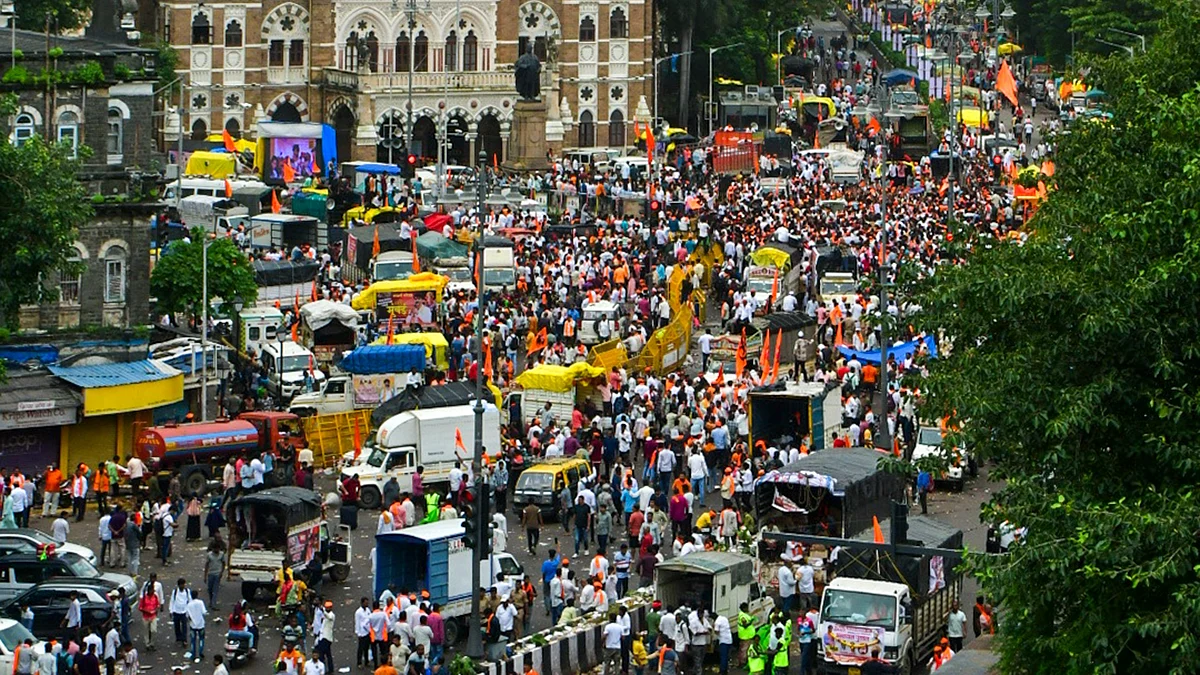1918 to 2025: How the Hyderabad Gazette shapes today’s Maratha reservation debate
Issued in 1918, the gazette listed Marathas under the Kunbi agrarian caste category, granting them eligibility for reservation

The long-running demand for Maratha reservation in Maharashtra reached a watershed moment on Tuesday, 2 September when the state government invoked a century-old document, the Hyderabad Gazette of 1918, to address the community’s agitation.
The Gazette, issued by the then Nizam of Hyderabad, formally recognised the “Hindu Marathas” as a group eligible for reservations in education and government employment. More than a hundred years later, it has been resurrected as the legal and historical basis for extending benefits to Marathas in Marathwada, but whether it represents a true resolution remains contested.
What the Hyderabad Gazette Entails
The Hyderabad Gazette, issued in 1918, listed Marathas under the Kunbi agrarian caste category, granting them eligibility for reservation in the Hyderabad State.
Today, the Maharashtra government has accepted this Gazette as the foundation to recognise Marathas from Marathwada as Kunbis. A government resolution (GR) has been issued, allowing those able to prove Kunbi lineage to obtain caste certificates and claim reservation benefits under the Other Backward Classes (OBC) category.
The decision came after activist Manoj Jarange Patil’s indefinite hunger strike at Azad Maidan, Mumbai, demanding 10 per cent OBC reservation for Marathas.
Following negotiations, the government not only agreed to implement the Hyderabad Gazette but also assured action on the Satara Gazette for western Marathas, case withdrawals for past protestors, and compensation for families affected during the agitation.
A Step Forward with Constraints
The implementation of the Gazette is undeniably significant. Thousands of Marathas in Marathwada with documented Kunbi ancestry stand to gain access to education and employment quotas. For many, this marks a long-overdue acknowledgement of their historical status.
However, the scope of the GR is narrower than the sweeping demand of blanket reservation for all Marathas. Only those with genealogical records demonstrating Kunbi, Kunbi-Maratha, or Maratha-Kunbi ancestry are eligible.
The process will rely on documentation verified by the Shinde committee, effectively leaving out large sections of the community who cannot furnish such records.
Community leaders note that such certificates were available in the past, raising questions about whether this move represents genuine progress or a re-packaging of earlier measures.
Legal and Political Balancing Act
The government’s reliance on the Hyderabad Gazette reflects a careful attempt to balance community expectations with judicial scrutiny. Previous attempts at introducing exclusive Maratha quotas were struck down by the courts for breaching constitutional limits on reservation.
By grounding the new GR in historical records, the state aims to build a defensible legal framework while avoiding conflict with existing OBC groups worried about dilution of their quota share.
Yet, the move remains politically fraught. The Bombay High Court has already signalled its impatience with large-scale protests that disrupted civic life in Mumbai during the agitation, warning of contempt actions for non-compliance with restrictions. At the same time, the partial nature of the GR risks leaving many Marathas dissatisfied, creating space for future agitations.
A Partial Victory
The Hyderabad Gazette’s implementation is, therefore, best understood as a partial victory. It provides a legal opening for thousands of Marathas in Marathwada to access OBC benefits but falls short of addressing the demand for comprehensive reservation. The measure rests on individual proof, not collective entitlement, meaning its reach will be uneven and contested.
As Maharashtra prepares to extend similar recognition through the Satara Gazette for western Marathas, the broader question remains unanswered: can historical records and selective documentation truly resolve one of the most complex and emotive reservation battles in the state? For now, the Hyderabad Gazette offers progress but not closure.
Follow us on: Facebook, Twitter, Google News, Instagram
Join our official telegram channel (@nationalherald) and stay updated with the latest headlines
